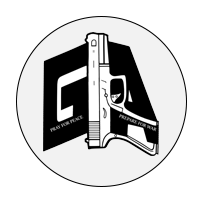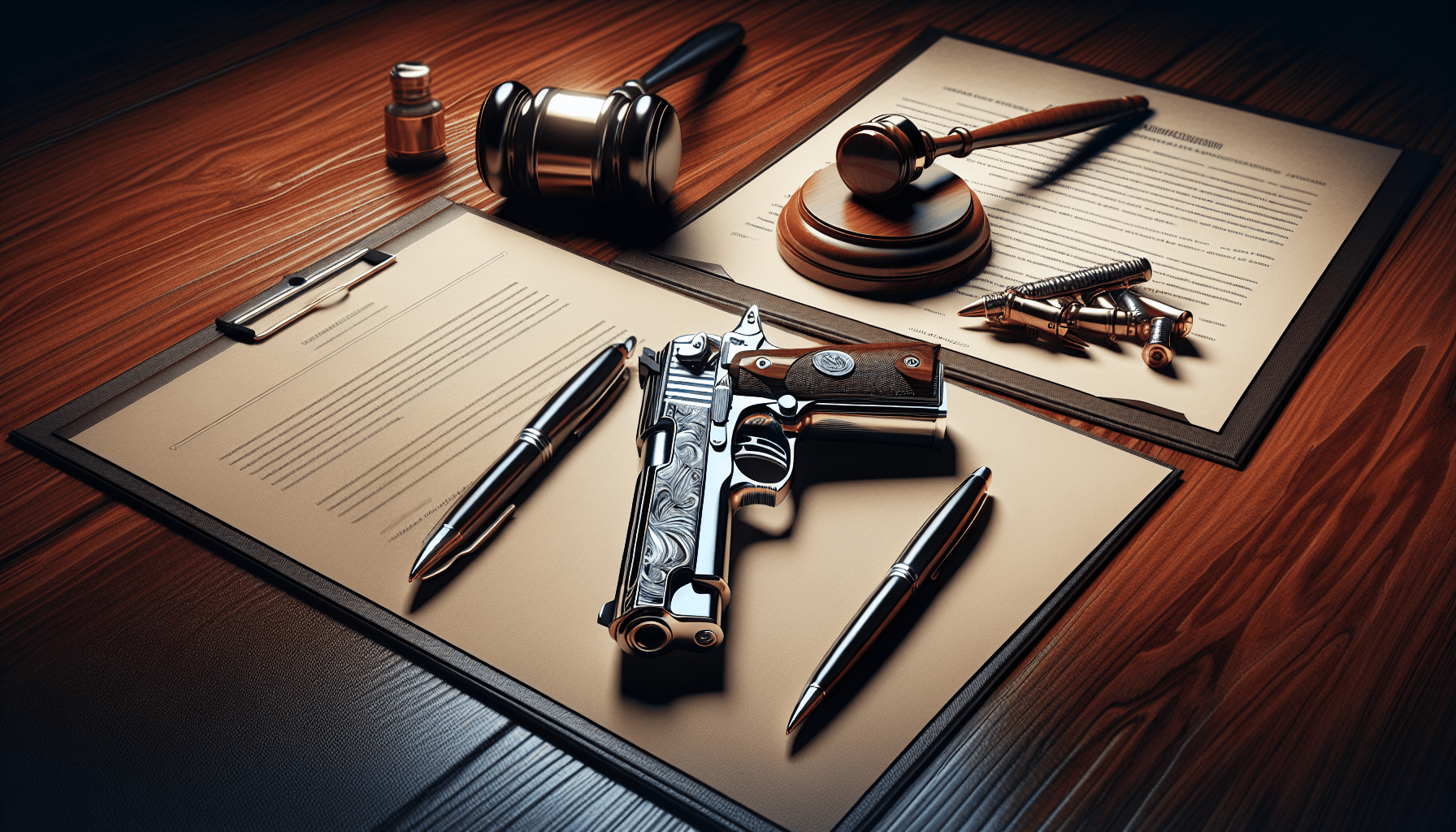Have you ever found yourself asking, “How do I sell or trade my firearm legally?” Navigating the world of firearms transactions can often feel like threading a needle while riding a rollercoaster. But, worry not! Let’s humorously and informatively unravel the complexities of legally selling or trading your firearms, much like stitching together a very detailed, yet incredibly readable, quilt.

Understanding the Basics of Firearm Transactions
Before we whip out our metaphorical pen and paper for the listing, it’s essential to step back and familiarize ourselves with the essential facts about firearms sales and trades. You wouldn’t want to dive headlong into a waterslide of regulations without knowing how deep the pool is, right?
The Legal Framework
At the core of legal firearm transactions is a web of federal and state laws that resemble a lovingly tangled ball of yarn. These laws ensure the safety of transactions and mitigate the risk of firearms falling into the wrong hands. The federal government sets a baseline through the Bureau of Alcohol, Tobacco, Firearms and Explosives (ATF), while individual states might add a splash of color to the legislative canvas.
Federal Laws You Need to Know
The Gun Control Act of 1968 is like the grandfather of all modern firearm regulations. It mandates the involvement of a licensed dealer in the sale of firearms, along with carrying out background checks on purchasers. The act also introduces the idea of a Federal Firearms License (FFL), which is crucial for anyone dealing in firearms to have.
In a private sale, the waters get a bit murky. While federal law doesn’t demand private sellers to conduct background checks, it’s not as simple as handing over a basket at a farmer’s market. Some states require them, and that’s why knowing your state’s laws is oh-so-important.
State Laws: The Added Layer of Complexity
If federal laws are the hearty soup, then state laws are the sprinkles of seasoning on top. Some states have embraced a love for regulations, while others prefer a more laid-back approach. For example, California insists on background checks for every sale, private or otherwise, while others, like Florida, maintain a more relaxed stance for private sales.
It’s crucial to check your local regulations before proceeding. Imagine trying to whip up a batch of cookies and forgetting whether you add a teaspoon or a tablespoon of salt—context matters!
Preparing Your Firearm for Sale or Trade
Preparing your firearm for sale or trade involves more than just dusting off the cobwebs. Think of it as getting your car ready for a trade-in; you wouldn’t show up with a messy trunk and empty gas tank. The same level of care ensures a smooth, legal, and successful transaction.
Gun Valuation
Determining the value of your firearm requires a touch of detective work—channeling your inner Sherlock Holmes. Consider factors like the firearm’s condition, age, brand, and model. A classic or rare piece might fetch a tidy sum, while something more common may fall closer to the yard sale find category. Resources like the Blue Book of Gun Values are incredibly helpful in making sure you’re not short-selling gold for granite.
Cleaning and Maintenance
Before showcasing your firearm, a good scrub-up is in order. Cleaning is less about impressing your buyer with a sparkling finish and more about ensuring the firearm is in optimal working condition. It’s akin to brushing your teeth before a dentist’s appointment. Proper maintenance could also prevent unnecessary haggling or dissatisfaction later.
Legal Documentation
Gathering your paperwork is akin to packing your bags appropriately before a big trip. Nobody wants to be caught at the airport without their passport. Make sure you have the original bill of sale and any registration papers. These not only establish legitimacy but also ensure a smooth transition of ownership.
The Transaction Process: Selling and Trading
With your firearm freshly polished and documentation in hand, it’s time to leap onto the stage of selling or trading. Understanding the transactional nuances is as crucial as knowing the steps in a dance-off.
Selling Your Firearm
Choosing Between a Private Sale or Dealer
To private sale or go through a dealer? That is indeed the question. Going the private sale route can offer more control over the process, but involves a keen eye on the legal implications. Conversely, dealers might offer peace of mind at the cost of a chunk in commission. Essentially, it’s the decision between managing your own garden or hiring a landscaper.
Conducting a Private Sale
Handshakes might have sealed the deal in the past, but today’s private sale involves some paperwork juggling. Depending on your state laws, it could be as simple as an exchange in smiles—or as elaborate as a background check through a dealer. Either way, keep a record of the transaction, both for legal reasons and for insurance purposes.
Going Through a Licensed Dealer
Using a licensed dealer requires being aware of FFL requirements. A dealer can guide the paperwork process, ensuring compliance with federal and state laws. This might incur a fee, and the deal may be subject to the dealer’s store policies and pricing guidelines. However, it adds a layer of professionalism—and potentially security—to the transaction.
Trading Your Firearm
Trading a firearm can feel like a nostalgic playground swap, exchanging marbles for toy cars, yet it requires adult-level considerations.
The Art of Barter
Whether you’re trading for another firearm or a different commodity, ensure both parties understand the transaction’s value and implications. Clear and mutually agreed upon terms prevent future grievances. Having a written agreement might lack the romanticism of a spit handshake but ensures clarity.
Legal Requirements for Trades
Trades follow the same legal guidelines as sales. Both parties should verify each other’s eligibility to own firearms legally, considering any state-specific requirements. A chat with a savvy attorney or a call to your local ATF office might illuminate any murky patches.
Leveraging Gun Shops and Experts
When it comes to firearms, expertise is your best ammo—pardon the pun. Your local gun store or an expert can be a guiding North Star during a sale or trade.
Why Visit Green Line Arms
Green Line Arms, situated in the heart of Pensacola, is more than just a gun shop; it’s a community. With its ethos of praying for peace while preparing for war, Green Line Arms is committed to responsible ownership through advanced training and realistic shooting simulation experiences.
Services Offered at Green Line Arms
Swing by for their array of firearms, ammunition, and accessories that could make any aficionado drool. Furthermore, explore their training programs that cater to enthusiasts of all levels. Whether selling, trading, or just exploring, the expertise and commitment found here are like a tight-knit, well-oiled machine ready to guide you through any transaction.

Accessories and First Responder Medical Tips
Firearm enthusiasts know that having the right accessories can transform good to great. But before running off into the sunset with your new or improved firearm, consider incorporating some critical accessories and first responder insights.
Must-Have Firearm Accessories
From scopes and sights to grips and holsters, the realm of firearm accessories offers a treasure trove of enhancements. Tailoring your firearm with the right tools not only complements its performance but also enhances personal satisfaction and safety.
First Responder Medical Tips
Possessing a firearm means accepting responsibility. Green Line Arms emphasizes the importance of knowing first responder medical techniques. Being equipped to handle emergencies thoughtfully and efficiently goes hand-in-hand with responsible gun ownership.
Tips and Resources for a Successful Transaction
Navigating the maze of legal sales and trades without a guidebook can be daunting. Fortunately, your path is lined with helpful tips and resources, akin to reliable road signs on an unfamiliar highway.
Educate Yourself Continuously
In the ever-evolving world of firearm laws and trends, staying informed is key. Being in the know is like having the latest edition of a spellbinding novel—never a dull moment. Subscribe to industry newsletters or attend workshops to keep your knowledge sharp.
Utilize Online Resources and Networks
Online forums and communities can provide insights and shared experiences from fellow enthusiasts. Websites dedicated to firearm law provide valuable resources that could answer burning questions or address uncertainties.
Maintain Documentation and Knowledge
Keeping meticulous records of your transactions is essential for both legal and financial health. Consider it your insurance—a folder that grows over time, instilling comfort and preparedness.

Conclusion: Stepping Forward with Confidence
In the end, selling or trading your firearm legally doesn’t need to feel like solving a cryptic crossword puzzle. By understanding the laws, preparing meticulously, and utilizing professional resources, you can navigate the constructive chaos of firearms transactions comfortably and legally. Remember, being informed is your best defense on this journey, turning daunting tasks into opportunities for responsible ownership and community-building. However you decide to proceed, know that there’s a world of enthusiasts and experts, like those at Green Line Arms, ready to support each step you take.




